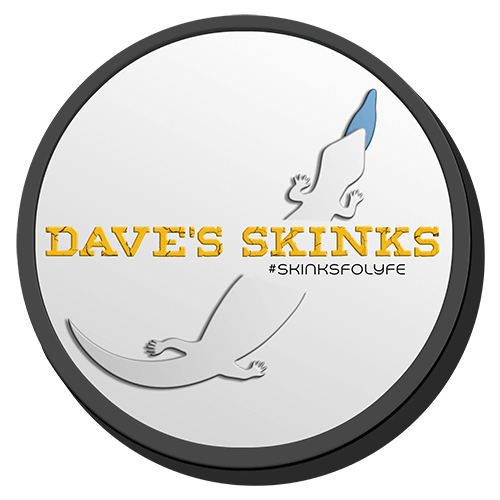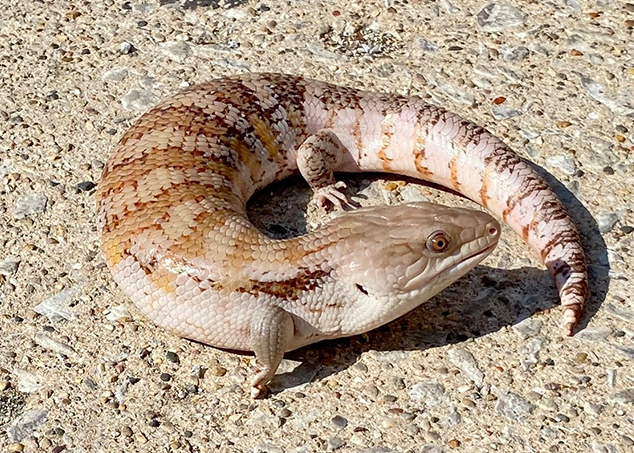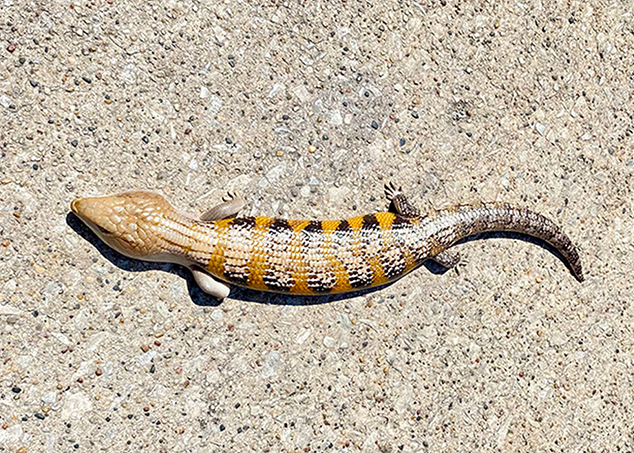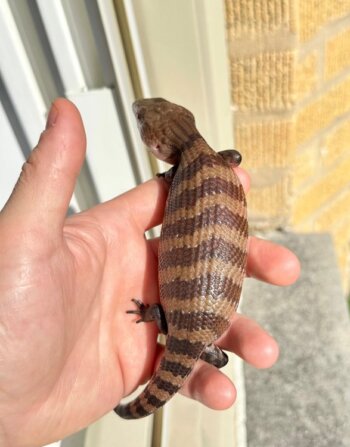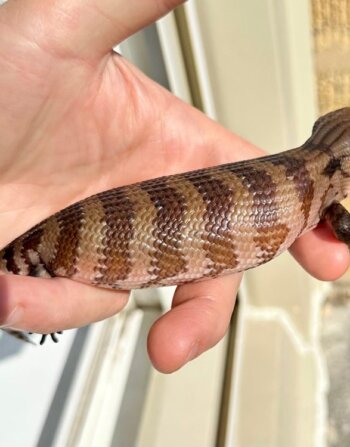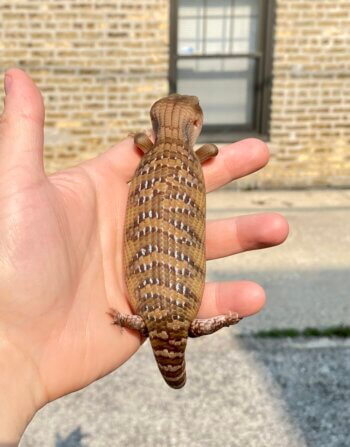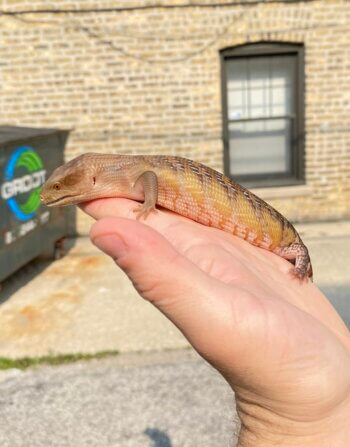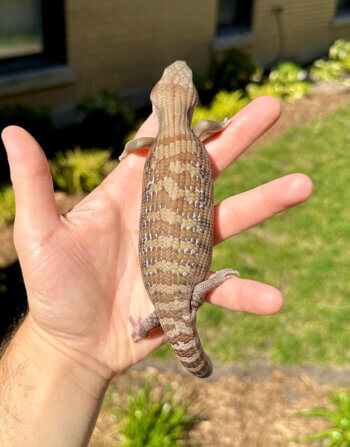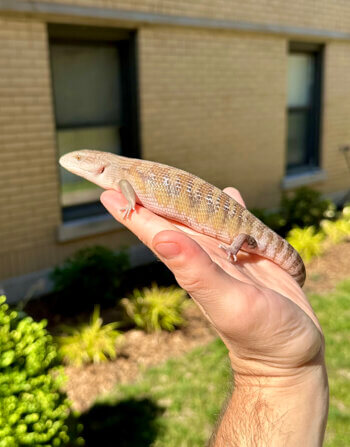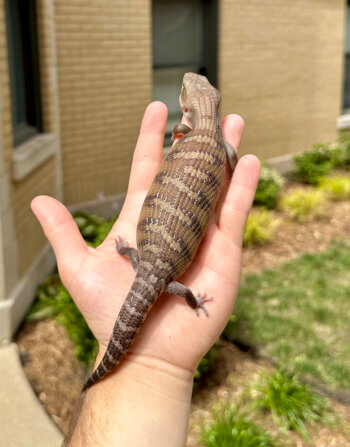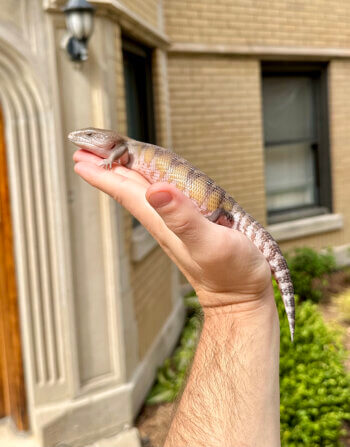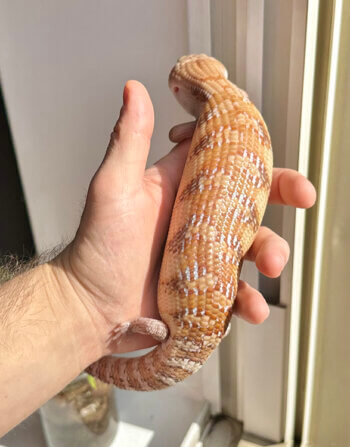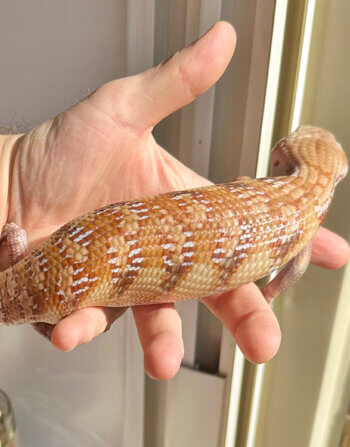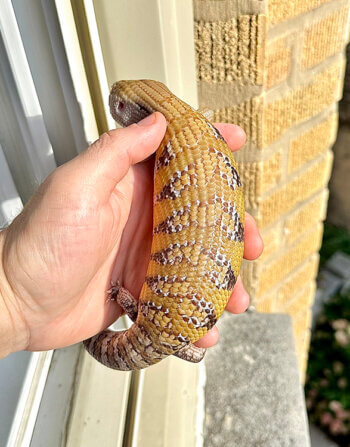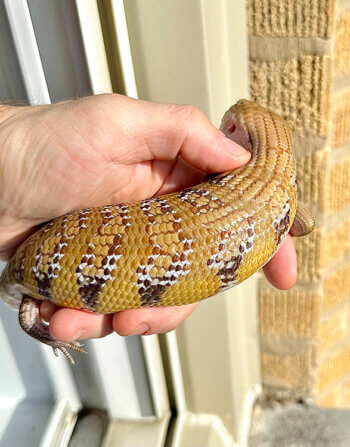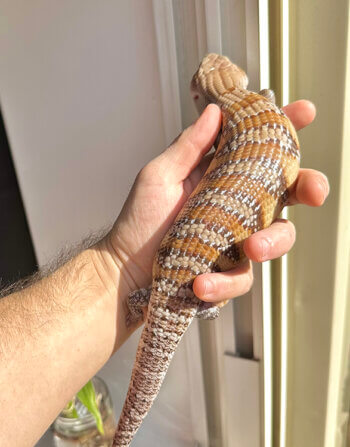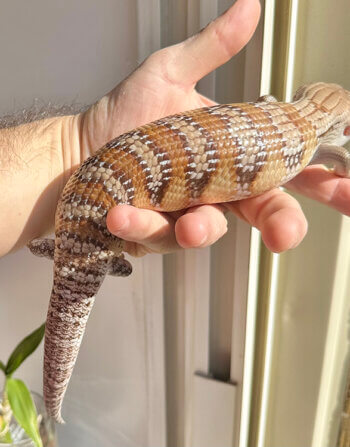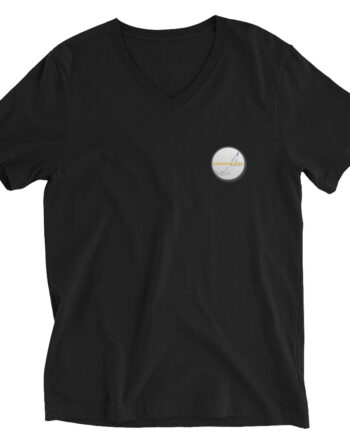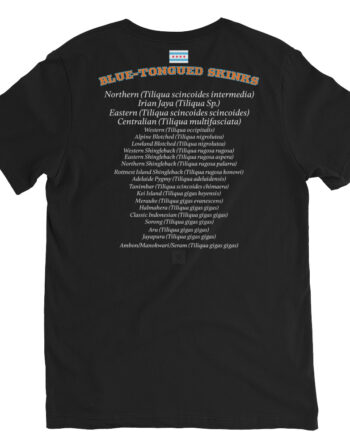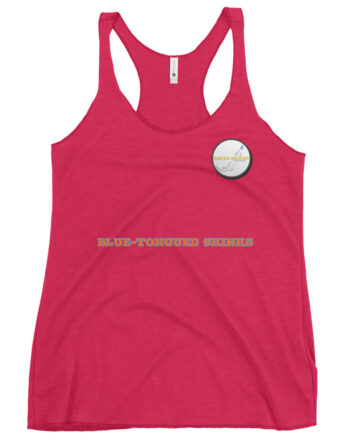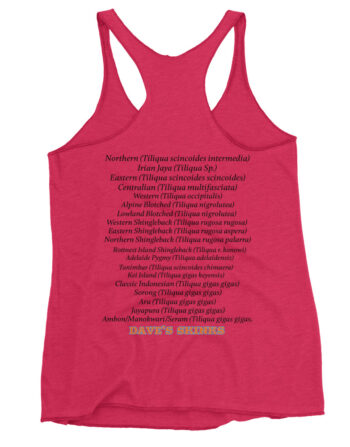Our Products
Lorem Ipsum is simply dummy text of the printing and typesetting industry.
FREQUENTLY ASKED QUESTIONS
When will you have babies for sale?
A: Northern babies are generally born first in May and early June. Irian Jaya babies typically arrive in late May to mid June though babies born in July is a possibility for either species. Once babies are born, they are held for health and safety until somewhere between their first and third sheds.
Is there a wait list or can I put a deposit down during the off-season (October ~ April)?
A: You may send us an email anytime to put down an Early-Bird deposit. We will save your info on file and gift you a First Dibs chance on litter and baby selection once babies arrive. If you are not ready to put down a deposit, we encourage signing up to receive our Emailed Newsletter for immediate updates.
How much do your skinks usually go for?
A: Irian Jaya babies are between $275-$325. Classic Northerns start at $325 and go up from there based on specialty genetics, beauty, and other factors. You can learn more about our pricing on the Purchase Rules page.
I have so many questions about Blue Tongue Skinks, where do I start?
A: If you are looking for an education on husbandry, there is no better place to start than the Dave’s Skinks Care Guide. It’s broken down by section and subsection. If you want to know how purchasing and shipping works, everything you need to know can be found in the Purchase Rules page. After you make your purchase, I will be happy to provide general support and advice for the duration of your skink companionship.
I’m really interested in certain genetic morphs. Do you have that information?
A: You can find everything you need on our Meet the Skinks page. Each of our breeding adults has their own profile with detailed genetic information, and there’s also an overview at the top explaining the origins of U.S.-developed Northern lines.
Do you accept trades?
A: I am always interested in acquiring Blue Tongues that align with my breeding projects. For Northerns, that means specialty morphs featuring high orange with an absence of their traditional dark side bands. For Irian Jayas, size does matter. I want to produce GIANT Blue Tongues. So adult Jayas 25+ Inches and 900+ grams and bigger. The prospects of other Australian Blue Tongue species also intrigue me, particularly Centralians (Tiliqua Multifasciata) and Shinglebacks (Tiliqua Rugosa).
What is better, a Northern or Irian Jaya?
A: It all comes down to personal preference, and your budget. There is virtually no difference in care, affection, temperament or size.
I see these initials CBB, CB, WC, appearing online. What do they mean?
A: CBB = Captive Born and Bred, meaning both parents were born and raised in captivity, as was their offspring.
CB = Captive Born, meaning the mother was collected from the wild, already pregnant and gave birth in captivity. The babies still stand a 50/50 chance of being born sick or showing signs of parasites like any bluey captured in the wild and shipped hastily overseas.
WC = Wild Caught. This can mean caught directly from the wild or raised in outdoor farms in Indonesia. Either type of Wild Caught stands the same chance of coming in sick and having a feral personality its whole life in captivity.
News & Blog
A Roleta Segura: Um Guia Completo para Jogadores de Cassino Online
- February 2, 2026
- 0 Comment(s)
Se você é um entusiasta de jogos de cassino online, provavelmente já se deparou com o jogo de roleta em …
Ruletka bez depozytu jackpot – recenzja eksperta
- February 2, 2026
- 0 Comment(s)
Ruletka bez depozytu jackpot to jedno z najbardziej popularnych kasyn online, które oferuje graczom możliwość gry w czat ruletka na …
Ruletka Bonus Powitalny Kasyno – Recenzja
- February 2, 2026
- 0 Comment(s)
Ruletka Bonus Powitalny Kasyno to jedno z najbardziej popularnych kasyn online na rynku. Z moich 14-letnich doświadczeń w grze w …
Sites de Roleta: A Experiência de um Jogador com 15 Anos de Experiência
- February 2, 2026
- 0 Comment(s)
A roleta é um dos jogos de cassino mais populares em todo o mundo, e com o avanço da tecnologia, …
Deciphering the Evolution of Video Slot Games: A Critical Analysis of’Book of Ra: Mystic Fortunes 2′
- November 30, 2025
- 0 Comment(s)
Within the fast-evolving landscape of digital gaming, slot enthusiasts are increasingly seeking detailed, credible insights into the developments that shape …
Testimonial
It was great dealing with Dave. He shipped our new skink when he said he would, and gave me some time to get my enclosure ready first. The skink is in great condition, you can tell he properly cares for his animals. I couldn’t be happier!
Src. Google
So happy with my new scaley baby! I had been following Dave’s skinks for a few years before making a purchase. He is always very responsive, helpful, and you can tell he takes great care of all of his reptiles. I had the pleasure of meeting the parents of this year’s litters and those chonkers are just the cutest.
Src. Google
Dave is the best of the best. He was very friendly and communicative during the whole purchasing process and the shipping process as well. He responded to all of my emails quickly. I also really like his website, very user friendly and has great info on directions for how to purchase. Dave even sent pictures for shipping and a tracking number. My baby arrived happy and healthy. I was searching around for a northern for a while and I ended up with the perfect one. I have no complaints. Would recommend Dave’s Skinks to anyone.
Src. Google
I recently purchased a Northern Blue Tongue Skink from Dave’s Skinks and I am beyond happy with the beautiful baby and the service I received! I could not have asked for a better experience. Dave took the time to call and help my family and I pick out the best baby skink for us! The communication we had back and forth during the purchasing process was clear and I could always expect to hear back promptly if I had any questions.
Src. Google
